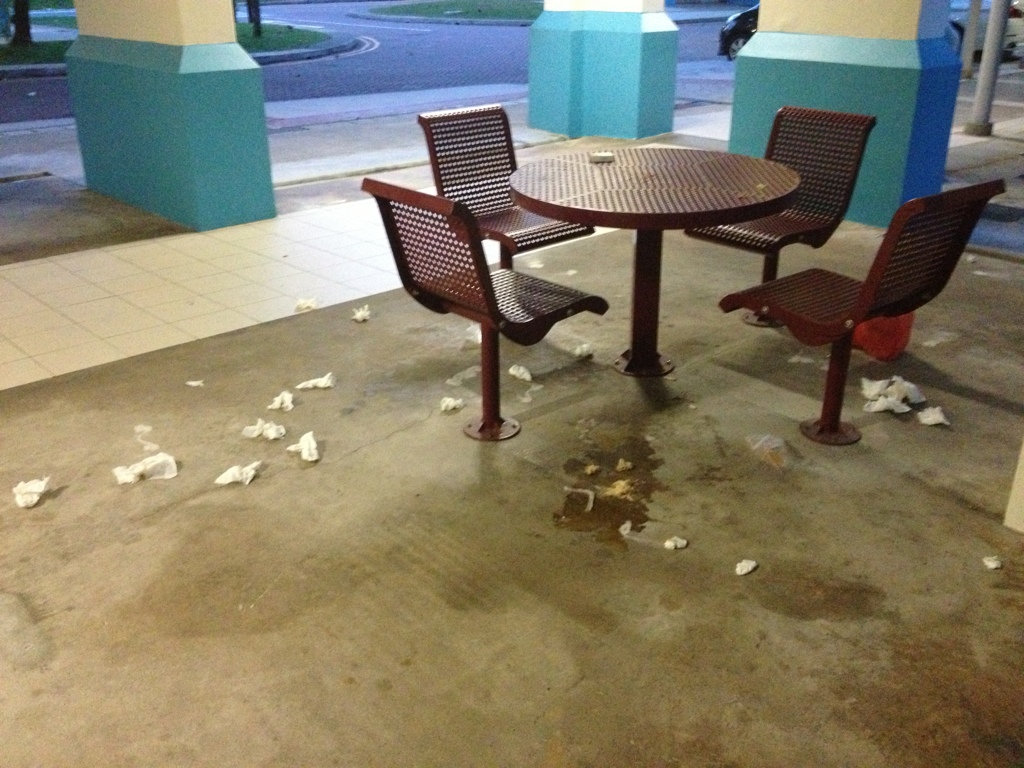Member of Parliament (MP) Lee Bee Wah is working with the National Environment Agency (NEA) to pilot a programme to reward people who catch people littering in her Nee Soon South ward.
According to TODAY, Lee said, "In Taiwan, every resident is an enforcement officer. They can video, they can take photos of the litterbug and submit to their NEA. And if there is successful prosecution, their NEA will give the resident who reported it half of the summons collected."
Here's how some netizens reacted to this suggestion:


By virtue of the fact that there are more people now in Singapore, it would not be unreasonable to assume that there will be more instances of littering.
Is "STOMP-ing" your members of your community the best way?
Judging from the comments from netizens, ratting on your neighbour is not something they would like.
However, that has not stopped a website like STOMP or Facebook pages like All Singapore Stuff from thriving from user-submitted content shaming Singaporeans for anti-social behaviour.
A better point to note is - have the existence of websites STOMP and All Singapore Stuff prevented anti-social behaviour?
Where is the Gotong Royong?
The concept of Gotong Royong, or mutual support within a community, was raised by Prime Minister Lee Hsien Loong in 2013 as something Singapore needed in order to do well. Minister for Culture, Community and Youth Lawrence Wong also touched on Gotong Royong in a Facebook post:
Spoke'>
Posted by Lawrence Wong on Thursday, 18 September 2014
The good Dr Lee's suggestion of rewarding constituents for taking photographs of people in the community littering may run counter to the spirit of Gotong Royong.
Has Singapore come to this - a carrot and stick approach for deterring littering?
The bigger the government, the smaller the citizen
The late Lee Kuan Yew once said,
“I am often accused of interfering in the private lives of citizens. Yes, if I did not, had I not done that, we wouldn't be here today. And I say without the slightest remorse, that we wouldn't be here, we would not have made economic progress, if we had not intervened on very personal matters - who your neighbour is, how you live, the noise you make, how you spit, or what language you use.”
But this is the post-LKY era. Singaporeans should not be looking towards the government to be the mediator or authority on everything under the sun.
As PM Lee once said in his National Day Rally address, "we may be a small island, we cannot be small-minded".
Rewarding Singaporeans to rat on fellow Singaporeans may encourage undesirable small-minded behaviours.
The best case scenario: Nee Soon becomes a cleaner estate, not because the residents love the environment as their own homes, but because of their fears of being penalised by authorities.
The worst case scenario: Nee Soon continues to be dirty, but the environment becomes "big brother-like" as mistrust breeds among neighbours. And Singaporeans will also blame the authorities for not enforcing the programme effectively.
A solution that does not address the root cause
Punishing people for littering does not solve the problem of why they decided to litter in the first place.
A major reason could be that, increasingly, Singaporeans do not feel like active stake-holders in the community they live in.
When they see someone litter, chances are the most they muster is a mental 'tsk' instead of confronting the litterbug. When they see litter on the streets, they are more likely to remark how Singapore has seen better days rather than pick up the litter.
If all the above were to happen in their own homes, they would most likely call out the litterbug and clean up the place. That's ownership.
Ownership of a community
A sense of ownership in a community can be fostered in two main ways - organically from communities themselves or through the top-down approach.
There's only so much the Government, People's Association and Residents' Committee can do. They cannot force Singaporeans to develop that sense of ownership. There is an old saying about bringing a horse to water.
Surely you cannot fault the Government when you see a piece of litter and choose not to pick it up.
While Lee's idea springs from good intentions, its implementation may run against fostering community spirit.
Her idea may also be symptomatic of a Singapore where the Government has already tried fostering a sense of ownership among Singaporeans but has not succeeded.
Whatever the case, it is up to Singaporeans to decide what levels of cleanliness they would like to see in their community.
Top photo from Vivian.Balakrishnan.sg
